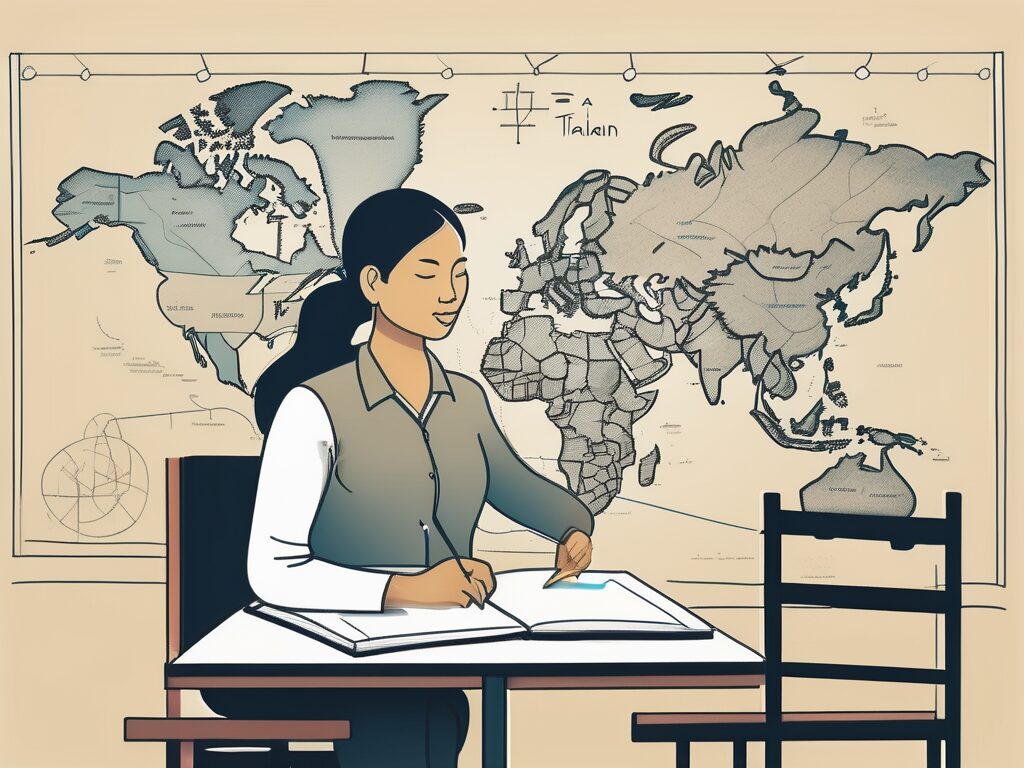Teaching abroad is a thrilling adventure, and Thailand, with its rich culture and friendly locals, is a popular destination for many international teachers. However, despite the allure of tropical beaches and exotic cuisine, teaching in Thailand, especially for IQTS International teachers, comes with its unique set of challenges. This comprehensive guide will delve into the top seven challenges that these teachers often face, and provide some practical solutions to help navigate these hurdles.
1. Language Barrier
The first and perhaps most daunting challenge is the language barrier. While English is taught in Thai schools, it’s not widely spoken outside the classroom. This can make everyday tasks like shopping or asking for directions quite difficult. It’s also a challenge in the classroom, as students may struggle with English instructions.
However, this challenge can also be seen as an opportunity. Learning Thai can be a rewarding experience, allowing you to immerse yourself in the local culture. Many teachers find that learning basic Thai phrases can significantly improve their day-to-day life and their teaching experience.
2. Cultural Differences
Thailand’s culture is vastly different from Western cultures. From social norms to religious practices, these differences can sometimes lead to misunderstandings or culture shock. For instance, Thai culture places a high value on respect for elders and authority figures, which can be reflected in classroom dynamics.
Understanding and respecting these cultural differences is crucial. Reading about Thai culture, attending local events, and interacting with locals can help you gain a deeper understanding of your new home. Remember, the goal isn’t to assimilate completely, but to respect and appreciate the local culture.
3. Teaching Methodologies
Thai teaching methods can be quite different from those in Western countries. Rote learning is common, and creativity in the classroom may not be as encouraged. This can be a challenge for teachers who are used to a more interactive teaching style.
Adapting to these methodologies doesn’t mean you have to abandon your teaching style. Instead, try to incorporate interactive elements into your lessons gradually. This can help your students become more comfortable with these methods over time.
4. Classroom Management
Classroom management can be a challenge, especially with large class sizes and language barriers. Thai students are generally respectful, but they can also be shy and hesitant to participate in class.
Establishing clear rules and expectations from the start can help manage your classroom effectively. Additionally, using visual aids and interactive activities can help engage your students and encourage participation.
5. Work-Life Balance
Teaching abroad isn’t just about work; it’s also about experiencing a new country. However, finding a balance between work and exploration can be challenging. Long working hours and lesson planning can take up a significant amount of time.
Effective time management is key to maintaining a healthy work-life balance. Prioritise your tasks, create a schedule, and don’t forget to allocate time for relaxation and exploration.
6. Homesickness
Living abroad can be exciting, but it can also be lonely. Homesickness is a common challenge for many international teachers. Missing family, friends, and familiar surroundings is perfectly normal.
Staying connected with loved ones back home, making new friends, and creating a comfortable living space can help alleviate feelings of homesickness. Remember, it’s okay to miss home, but try to also appreciate the unique experiences your new home offers.
7. Visa and Work Permit Issues
Navigating the Thai visa and work permit process can be complex and time-consuming. It’s important to understand the requirements and deadlines to avoid legal issues.
Seeking advice from your employer, fellow teachers, or a legal professional can help you understand the process better. Remember, staying informed and organised is crucial when dealing with visa and work permit issues.
Teaching in Thailand is undoubtedly a unique experience, filled with both challenges and rewards. By understanding these challenges and finding effective solutions, you can make the most of your teaching adventure in the Land of Smiles.
Enhance Your Teaching Career in Thailand with iQTS
Overcoming the challenges of teaching in Thailand is just the beginning. If you’re looking to elevate your qualifications, increase your chances of career progression, and connect with a global network of professionals, The IQTS at UWE has the solution. Our International Qualified Teacher Status (iQTS) Programme is designed to help you meet stringent international school requirements, with proven results like a 50% boost in interview callbacks and a 45% increase in promotion rates. Don’t let isolation or a lack of understanding of international curricula hold you back. Join the iQTS programme and become 65% more adaptable in the global education landscape. Make your next step towards a fulfilling international teaching career with flexible online study options that fit your busy schedule. Make Your Next Step and join the iQTS at UWE today.

